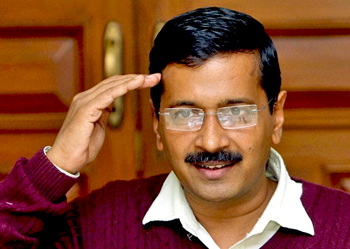 New Delhi, Aug 25: Former Delhi chief minister Arvind Kejriwal on Sunday said he has learned that "one must never quit the chair" even as he claimed that AAP had achieved more in its 49-day rule in the national capital than the Narendra Modi government in its 100 days at the Centre.
New Delhi, Aug 25: Former Delhi chief minister Arvind Kejriwal on Sunday said he has learned that "one must never quit the chair" even as he claimed that AAP had achieved more in its 49-day rule in the national capital than the Narendra Modi government in its 100 days at the Centre.
"No one in India's history worked the way we did in those 49 days. We reduced prices of electricity, water, brought down corruption.
"What has Modi done in his 100 days? BJP has failed to control inflation. After winning elections, they have increased train fares and the prices of petrol, sugar," Kejriwal told a rally here.
Kejriwal said he regretted his decision to quit as the chief minister and added that he had learned a lesson. If voted to power, he would focus on Delhi and govern for the full term of five years, he said.
"We are new to politics and we learned one thing, that one must never quit the chair. This time if we come to power, we will not quit. We will stay in Delhi and rule for full five years," he added.
"Congress did not allow us to work and only I know how I worked for those 49 days, which is why I quit ... Now you have to ensure that we rule for five years," he added.





Comments
Add new comment